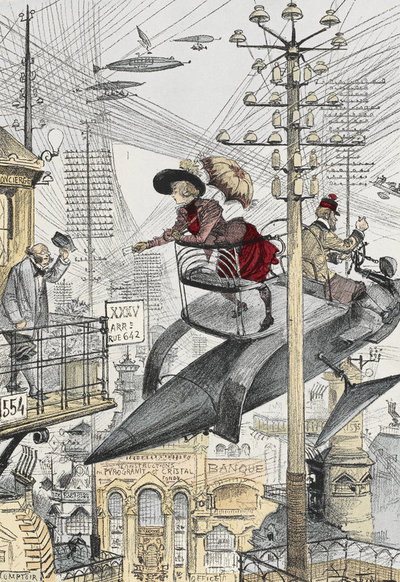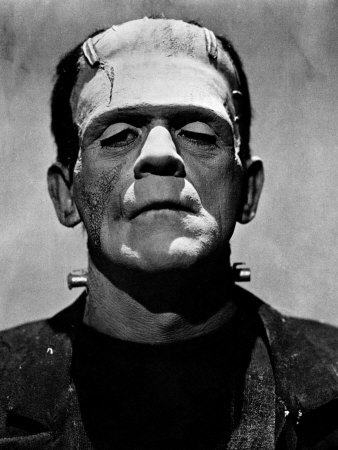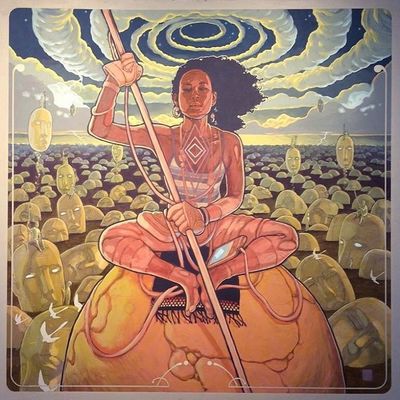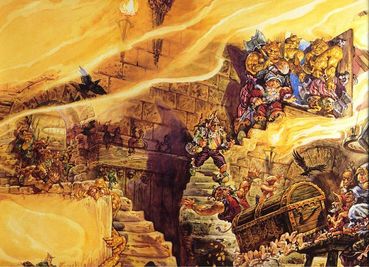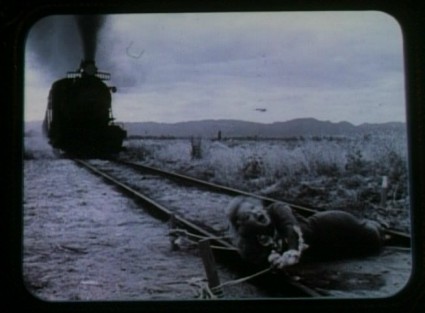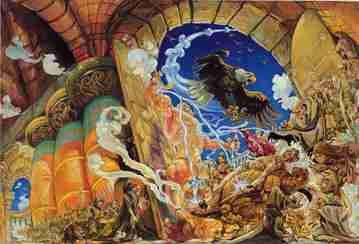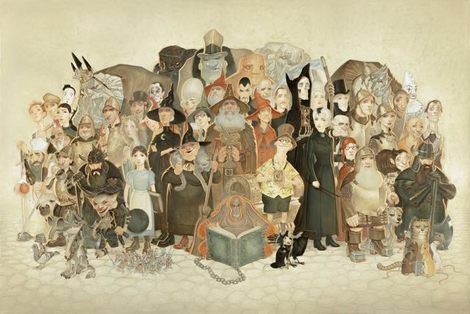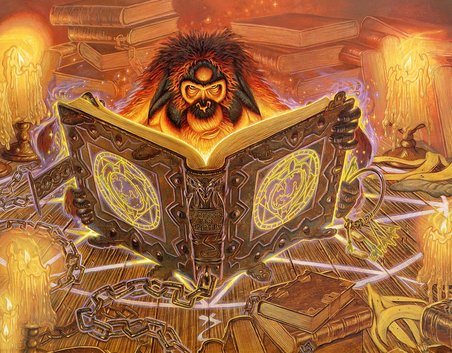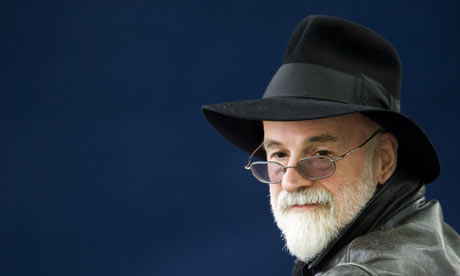|
It all began when Leigh and C. embarked on a complete re-read of Terry Pratchett's Discworld (speak his name). After having been fans for decades, we knew what to expect from a Sir Terry's novel: wit, a thought challenging story, great characters and no chapters. But when we read again The Colour of Magic (and it was the first time we were re-reading it in years), the chapters jarred a bit. When, after months of reading, we reached Going Postal, the chapters were back, and since we had gone for about 20 books without, it seemed even more shocking and, along with Ian, we wondered how much chapters influenced our reading. Chapters do seem like an appropriate point to stop. They're not arbitrary cuts, but they contain, a bit like scenes in theatre, a unity whether it relates to action or character. Talking about "the chapter of your life" is nothing more than trying to imitate in messy life the organisation a writer gives to their story. You stop there, go to sleep and pick back the book again the following day, ready to move on to another moment of the action. Nonetheless, more often than not, writers use the end of the chapters as a stepping stone for the next chapter: the trend for the cliffhanger started as early as the 19th century with serialised novels. For instance, at the end of chapter 20 of The Three Musketeers, the Duke of Buckingham opens a letter and exclaims he needs to go back instantly to London, without explaining why. The chapter ends with D'Artagnan and him riding with all haste. But we are still far from the life and death cliffhanger that will be popularised through the 1920s serialised fiction, whether in novels or in films. A cliffhanger isn't a reader's best friend. Sure, it keeps us engaged and good cliffhangers can turn a book into a literal page turner. But when you're just reading a bit before sleeping and think "I'll stop at the end of the chapter" followed by "Oh no! What will happen next?", the reader who has to wake up at 6am to go to work can end up pulling an all nighter because some devious author made it impossible to find a good place to stop reading! But writing a good cliffhanger isn't an easy task. Some novels seem to have been written with this only thought in mind: "Chapters must end on a cliffhanger." And you can end up having the most obvious and artificial cliffhangers. First, there is the false drama. She was woken abruptly from her sleep by a crash in the kitchen. Who was downstairs? Had someone broken in? She crept downstairs, with her baseball bat held aloft, ready to confront the intruder... Chapter ends, high drama. Next chapter: the cat sits there in the middle of the kitchen, having upturned its dish in disgust at its emptiness, washing its paws and seemingly completely oblivious to the tension it had just caused. The other is foreboding. As she left the house to go to work, little did she realise that she would never see her puppy again! *Da da daaaaaaaaaaa!* Oh my word, what is going to happen? That kind of signposting can leave cold many a reader. A novel needs planning and, in this carefully balanced architecture, a chapter plays a vital role to lead the reader through the intended experience. So normally, the writer dictates where we stop. But here comes Terry Pratchett who doesn't do chapters. And it's not that we dislike chapters in books, as long as the endings do not feel forced, but we find having read so much of Sir Terry Pratchett (speak his name) that we rarely stop where we are supposed to (rebel, rebel). Sir Terry wasn't the first. From the 20th century, writers tried to reflect the chaos life is by giving up these neat portioning of a life or of an action, as we can see in Georges Perec's autobiography for instance. And Sir Terry echoes this idea. In an interview, he declared: "life does not happen in regular chapters", adding "I'm blessed if I know what function they serve in books for adults." So how do we read a Terry Pratchett novel when we have no chapter telling us: "It's ok, you can turn off the light now"? Most of us stop at the end of a praragraph, unless the first word of the next paragraph catch our eye and here we go again. Some of us have more unique techniques, like stopping on a left page paragraph providing there isn't a paragraph overleap on the next page. But in the end, none of us have the same reading experience because we all stop at different moments. Reading a Terry Pratchett novel is a lovely wander, unique to each reader, until we find a place of our own to stop. Let's consider Jingo for instance (1997). Two readers start on it. Reader A decides to stop for the night when Vimes considers the crowd outside the palace "As if they were waiting for something". Sense of dread building. Reader B stops when Vetinari tells Vimes to take care "that no one throws eggs or something at the Prince. That sort of thing always upsets people." Satire. And since that where we end is where we consider there's a strong point, that we've reached a moment that can be a whole for the day, it means readers A and B will end up either with the view that Jingo will turn out as a political novel about how a crowd can act completely stupidly when on a momentum (true) or with the view that Jingo while a novel about war, diplomacy and foreign relationships is also a comedy (equally true). But how much is our decision to stop biased? When reading, someone looks mainly for a confirmation bias: "This character represents everything I aspire to, I identify myself with him/her/they" or "This character is awful, I am completely rejecting him/her/them because it is completely the opposite of what I aspire to." Even when we learn something from a novel, when it confronts us with novel ideas or a new angle to consider things, a reader still needs "a proxy" (usually a character) to create the confirmation bias: "Oh, my favourite character is feeling pity for the slave! Maybe slavery is bad." (Duh.) Let's go back to Jingo: I've read the paragraph that ends with Vimes watching the crowd warily. I nod wisely to myself, I'm in full agreement with Sam on this, but the night is still young so I keep reading. I arrive at the point when Vetinari mentions throwing eggs at the prince. I chuckle. I've had a good day and the sentence continues this mood while still saying things I agree with: this is where I stop. But let's imagine I keep on reading: I've had a terrible day, I despair of young people and violence in this world. So I'll stop after Captain Carrott's football match with the gangs, because on this day it was the perfect place to stop: it gave me the hope I needed after a bad day. And if I had had a bad day and stopped when Vimes looks at the crowd, I would be, consciously or unconsciously, deciding to end on a note as sour as my day (and probably ruin any chance of a peaceful sleep). So it's not only that where we stop in a Pratchett book when we feel like it provides a unique experience, it's also that because we can stop whenever we feel like it, the novel lets us create the world view we want or need. Reaching Making Money in our re-read, as this is once again a book in chapters, we keep finding ourselves surprised when we reach the end of one. Leigh intends to look out for the little notes in the precis at the beginning of each chapter as she reads it, but she forgets. We definitely don't wait for the end of a chapter to stop - we still stop where we want. We are so accustomed to a single stream with STP (speak his name) that we behave in our reading as though it is still that very thing. Because Sir Terry Pratchett didn't write with chapters he allowed us to make his stories completely ours, like someone in the pub, telling us something fascinating and then stopping to politely hear our thoughts. It's wandering through a wood with someone who has a map but decides that, today, we will go exploring the wood without the map, according to your desire and maybe, we will find a tresure. Sir Terry Pratchett was a master storyteller: his characters and his stories will go on long after us. But more than that, he truly gave us his stories to make what we wanted with them. And our lives would certainly have been poorer without them. Whether they have chapters or not. This blog post was written by C. and Leigh with input from Ian.
0 Comments
Your comment will be posted after it is approved.
Leave a Reply. |
"While we were reading" is an irregular feature about reading science-fiction and fantasy. It can contain guest posts. Nothing fancy, come as you are.
It is also home to all the Subjective Chaos Kind of Awards announcements. |
WHAT IS THE MIDDLE SHELF?
The middle shelf is a science-fiction and fantasy books reviewS blog, bringing you diverse and great stories .
PLEASE SUPPORT AUTHORS.
IF YOU LIKE IT, BUY IT. |
ON THE MIDDLE SHELF
|
KEEP IN TOUCH WITH THE MIDDLE SHELF
|
